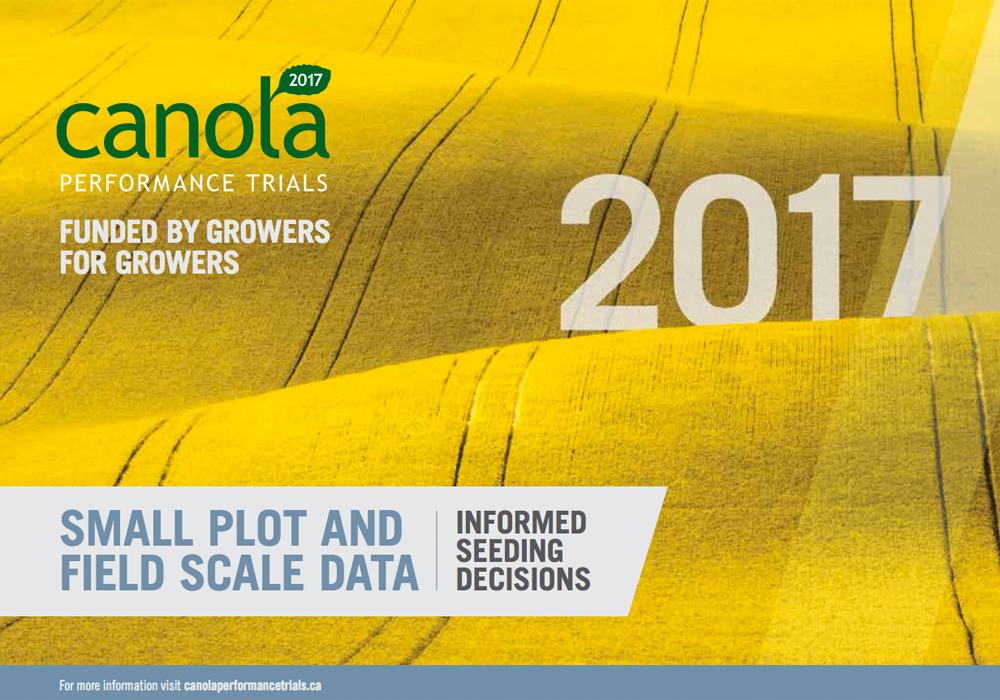Canola growers in Western Canada will continue to have access to annual trial data that compares the performance of different canola varieties at sites across the Prairies.
However, some changes could be in store for the popular Canola Performance Trials (CPT) following an announcement by the Canola Council of Canada that it will play a reduced role in administering the program.
CCC president Jim Everson said last week that the council is looking to scale back its involvement.
The decision is part of a larger effort to reduce operational costs at the council, which will see its core budget reduced to $5.2 million in 2019, down from $8.7 million two years earlier.
Read Also

Farming Smarter receives financial boost from Alberta government for potato research
Farming Smarter near Lethbridge got a boost to its research equipment, thanks to the Alberta government’s increase in funding for research associations.
Everson said the council will continue to be involved in the CPT program, but will be looking to other industry partners to play a larger role in areas where the canola council is pulling back.
“We will continue to be involved (in the trials) because it is an important program,” Everson said.
“There’s a fair amount of administrative support that goes into the (program) that our people have done.… We want to work with (the CPT governance and technical committees) to transfer some of those administrative responsibilities over to other stakeholders and … draw back on the amount of work that our agronomy specialists do.”
The Canola Performance Trials have been around since 2011.
They are funded by provincial canola commissions in Manitoba, Alberta and Saskatchewan and are delivered by the canola council.
They also receive in-kind support from other industry groups, including provincial agriculture departments and private-sector canola seed companies.
When the CPT program was launched, annual costs were estimated at around $1 million.
Details on current program costs were not made available to The Western Producer.
Everson said the canola council agronomists served a variety of functions within the CPT program.
CCC agronomists played a key role in selecting the varieties that were entered into the program, identifying and working with co-operators that managed trial sites, and performing site evaluations during the production season.
Council agronomists will continue to be involved in the program and will use it to identify agronomic issues that are important to the industry, such as fertility and water-use efficiency.
The council will also retain its role in analyzing, presenting and distributing CPT data through the council’s websites and other forums, Everson said.
The trials will continue to produce data that’s presented in a transparent fashion to producers and the industry, he added.
Everson declined to speculate on whether the trials themselves would be reduced to include fewer sites or fewer varieties.
In a Dec. 13 email, the Saskatchewan Canola Development Commission said the Canola Performance Trials are an important variety evaluation tool used by canola growers across the West.
The trials provide relevant and unbiased performance data that reflect actual production practices and offer comparative data on leading and newly introduced canola varieties.
“SaskCanola, along with our provincial counterparts, will evaluate the impact of CCC’s decision to reduce its role in administering the Canola Performance Trials and determine resources needed going forward,” the SaskCanola email said.
Trial data is essential information that is used by growers to make varietal choices, it added.
In 2018, the CPT program included field-scale tests at more than 30 locations across the Prairies.
Field-scale trials looked at comparative yields under straight-cut and standard harvest systems, as well as yields from a limited number of clubroot-resistant canola varieties.
CPT’s small-plot trials compared the performance of 27 canola varieties at a total of 18 locations in short-, medium- and long-season production zones.
Results from the 2018 trials will be posted online at www.canolaperformancetrials.com.


















